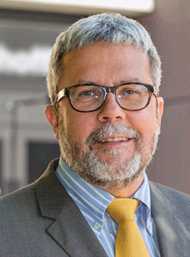Frank BERGER
Professor and Head of Research Lab, Department of Electrical Apparatus and Switchgear, TU Ilmenau, GERMANY
Research interests:
switching devices system engineering, high voltage technology, impulse and over-voltage technologies
Keynote address:
Overview and developing directions for DC switching technologies
Abstract:
Due to the new international regulations and the ever growing environmental concern, the generation, transport, and consumption of electrical energy undergoes a steady and straight forward development. In many developed countries, the predicted energy required to supply the constantly increasing demand can no longer be sustained with the existing transport networks. In countries under development completely new networks are becoming a necessity for entire communities. This fact, combined with the decentralization of the power generation system created by the higher acceptance and development of remote renewable energy sources, lead to a request for new network topologies. These should be able to sustain higher power demands with minimal losses, higher stability, and availability from the high voltage (HV) down to the low voltage (LV) level. With regard to the HV power system, the advantages of direct current (DC) as means of transmission cover most of the above mentioned requirements. On the LV systems, for a further improvement and stability of the network, hypotheses have been raised regarding the usage of DC currents for the infeed of higher (e.g. computer center) or lower power (e.g. household) consumers, avoiding in this manner the transformation losses. But this approach also raised new questions, a main concern being if the current switching devices are able to withstand and safely turn-off, under specified conditions, the prospective DC currents. Most of today's electrical switching devices available on the market are mechanical breakers where an electric arc is ignited during the opening and the closing procedure. The stress induced by a DC current during the arching period is notably higher than in case of an AC current. This presentation will offer, in the first part, the requirements that an electrical switching device has to withstand under the conditions previously mentioned, considering a wide range of applications where these devices are used and covering all voltage levels. An overview of the technologies already available on the market will be further presented and, considering some of the examples possible development directions will be envisioned in the second part. The main techniques used in order to analyze and improve the switching behavior of a switching device will be presented and discussed in the last part of the current presentation.
Frank BERGER received the Dipl.-Ing. (1984) and the Dr.-Ing. (1991) degrees in electrical engineering from the Technical University Dresden.
From 1991 to 2003, he worked for Moeller GmbH Bonn, responsible for research on switching devices and switchgear as Manager of the Applied Research Group. Since 2003 is a Full Professor for Electrical Apparatus and Switchgear at Technical University Ilmenau. Since 2007 he is the chairman of the committee "Contact Behaviour and Switching" of the German Association of Electrical Electronic and Information Technologies (VDE) and he represents Germany as a member of the Advisory Group for International Conference on Electrical Contacts. In 2015 he received from the Forderverein Kontakte und Schalter e. V. the Albert-Keil-Price for demonstrated outstanding accomplishments in the field of electrical contacts. His research areas include discharge, contact and switching arc physics phenomena in High- and Low-Voltage AC- and DC-Components and Systems. He is author and co-author of more than 130 publications in scientific journals or books.


